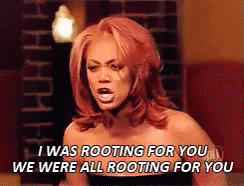Earlier this week, Fabio Bertoni, General Counsel at the New Yorker, took to the pages of the magazine for a long, hard look at the deterioration of the rule of law that characterizes 2025. Unsurprisingly, for those of us who follow the legal industry, he points the finger at the deals nine Biglaw firms inked with the Trump administration, writing, “Counterfactuals are impossible to prove, but it doesn’t require a giant speculative leap to conclude that, had major U.S. law firms not so quickly surrendered to Trump, this spring, he would have been denied early momentum for his lawlessness. Perhaps a united opposition might have even provided the opposite momentum, toward a defense of the rule of law.”
That seems like a tall order. I’m anything but an apologist for the capitulating firms, but they can’t shoulder all of the blame. Donald Trump spent almost every second since January 6 telling anyone who would listen that his next administration would be a lawless hellscape. To the extent anyone bears a responsibility for throwing a wrench into the slide into authoritarianism, there are, after all, actual REPUBLICANS who hold elected office and federal judgeships who have refused to lift a finger. Or, in many cases, have actively cheered on the decay.
But even if they weren’t America’s last clear chance to avoid fascism, the firms can’t escape blame for the sorry state of the rule of law. You’ll recall, early in his second term, Donald Trump launched a war on Biglaw through unconstitutional Executive Orders designed to break major law firms unless they bent the knee. In the face of financial harm, nine major firms sought Trump’s seal of approval, providing millions in pro bono payola, that is, free legal services on behalf of conservative clients or approved causes in order to avoid Trumpian retribution.
The firm that started the wave of capitulation was Paul, Weiss. The firm shocked the world of Biglaw in March when they became the first to agree to a deal with Trump.
But, instead of standing up for the rule of law and suing the Administration for its unlawful executive order, [Firm Chair Brad] Karp and Paul, Weiss settled a mere six days after Trump issued it. That settlement obligated the firm to provide forty million dollars in pro-bono services to “support the Administration’s initiatives,” and to “not adopt, use, or pursue any DEI policies.” Eight other global law firms quickly followed suit, reaching settlements totalling a reported nearly billion dollars in pro-bono services for causes championed by the Administration. And, although all the firms claimed to have retained control over what specific pro-bono work they will do, Trump clearly doesn’t see it that way, suggesting during one Cabinet meeting that he could use the legal work as sort of a personal piggy bank of services even after he leaves office, saying, of the accumulated total, “Hopefully I won’t need that,” he said, “after it ends—after, after we leave. Maybe I’ll need it.”
The inadequacies of the Republican party are disappointing, but not terribly surprising. Paul Weiss’s, on the other hand, were genuinely shocking. The deal they struck with the administration reverberated throughout the industry. The PW deal stands out not just because it was the first of the Biglaw deals with Trump, but because it was Paul, Weiss. The firm *had* a well-earned reputation for pursuing social justice initiatives and “being guided by what is right and having the moral courage to lead others to follow.” (Those were Karp’s words, pre-Trump deal.) The deal is anything but that. To use an iconic pop culture moment, we were all rooting for you. And, like Tyra, we were let down.
Bertoni, like many, sees the Paul, Weiss deal as selling out the legal system to take care of its own bottom line.
A firm of the size and power of Paul, Weiss should have looked out for the system a little bit. Karp, his partners, and their peers at the other firms that settled should have taken care of the system just a little bit. Instead, they took a dive for the short-end money.
In a cynical way, you can argue Paul, Weiss got a “good” deal out of the administration. They are only on the hook for $40 million in pro bono payola, a figure that is significantly smaller than what the other capitulating firms are gifting to the administration, and a mere fraction of PW’s historical outlays of pro bono expenses meaning they could potentially be free from their obligations in under a year. And financial reports indicate that, despite the public exodus of a number of attorneys, business is thriving.
As these firms see it, they got out from Trump’s thumb without giving up anything that really mattered. No harm, no foul! But that kinda misses the point.
Because whatever the firms thought they gave up, it was more. The administration is openly talking about using them to defend police brutality. Lawmakers are looking into reports of free – and illegal — work supporting the Commerce Department. All of it well beyond what the deals claimed to cover. Even if they disagree with that characterization, as some have in letters to congress, there’s little to no trust that they actually would stand up to an administration altering the deal.
Not to mention there’s a carryover effect in Biglaw proper. The Paul, Weiss deal — again, a firm noted for its storied liberal background — signaled the all-clear for other firms to get on Trump’s good side. More than twice as many firms capitulated to Trump than fought against the Executive Orders.
And as the number of deals grew, the impact reverberated far beyond the individual firms themselves. Biglaw firms that did not deal with the admin are changing their DEI programs, eliminating affinity groups, and scrubbing pronouns from attorney email signatures to avoid any unwanted attention. There’s a documented chilling effect in the work Biglaw is taking on too: pro bono and public interest representations by Biglaw firms are down — significantly — as firms don’t want to risk provoking Trump’s ire.
Perkins Coie, one of the few Biglaw firms to fight Trump on his Executive Order, is taking a hard line with their attorneys’ personal expression in, what reads as, an attempt to *not* court any more ginned up controversy.
If Trump wanted to derail the legal industry’s capacity to stand up to his onslaught, he could hardly have done better than to send a message to the broader industry that they might be the next crushed under a payola deal if they don’t take their considerable resources and sit on the sidelines while he takes aim at immigrants, victims of racial discrimination, and public dissent. The capitulating firms may think the deals they made on paper didn’t impact them all that much, but they’ve have an indelible — negative — impact on the industry at large.
Regrettably, the last 100 years have taught us a lot about how authoritarianism takes hold of a country. It’s rarely with the full-throated support of powerful institutions or over their furious objections. More often power is consolidated on the back of the acquiescences of those institutions. After all, it’s just “good business” to keep their heads down.
 Kathryn Rubino is a Senior Editor at Above the Law, host of The Jabot podcast, and co-host of Thinking Like A Lawyer. AtL tipsters are the best, so please connect with her. Feel free to email her with any tips, questions, or comments and follow her on Twitter @Kathryn1 or Mastodon @Kathryn1@mastodon.social.
Kathryn Rubino is a Senior Editor at Above the Law, host of The Jabot podcast, and co-host of Thinking Like A Lawyer. AtL tipsters are the best, so please connect with her. Feel free to email her with any tips, questions, or comments and follow her on Twitter @Kathryn1 or Mastodon @Kathryn1@mastodon.social.
The post Playing The Blame Game Over The Biglaw Trump Deals appeared first on Above the Law.

